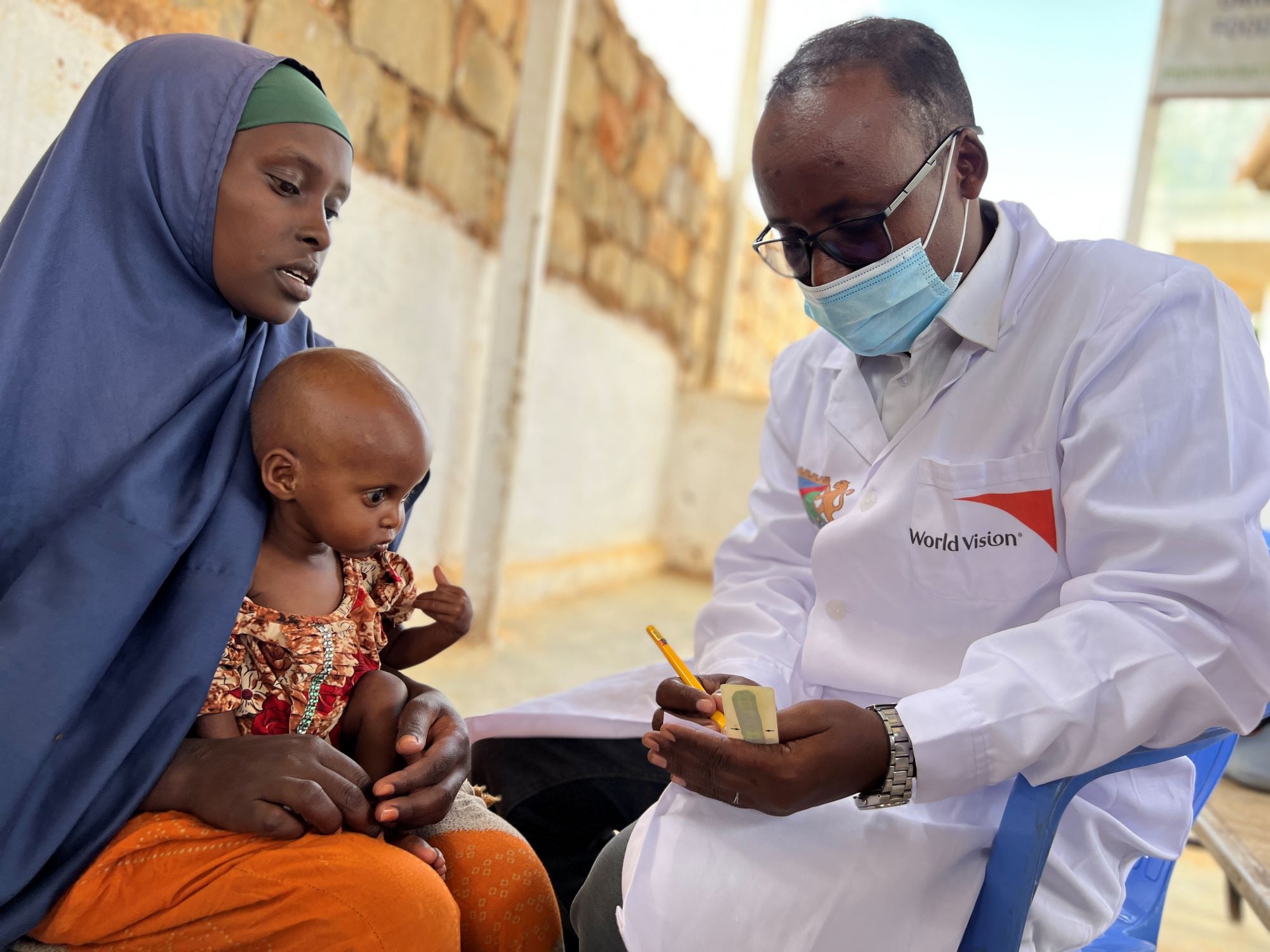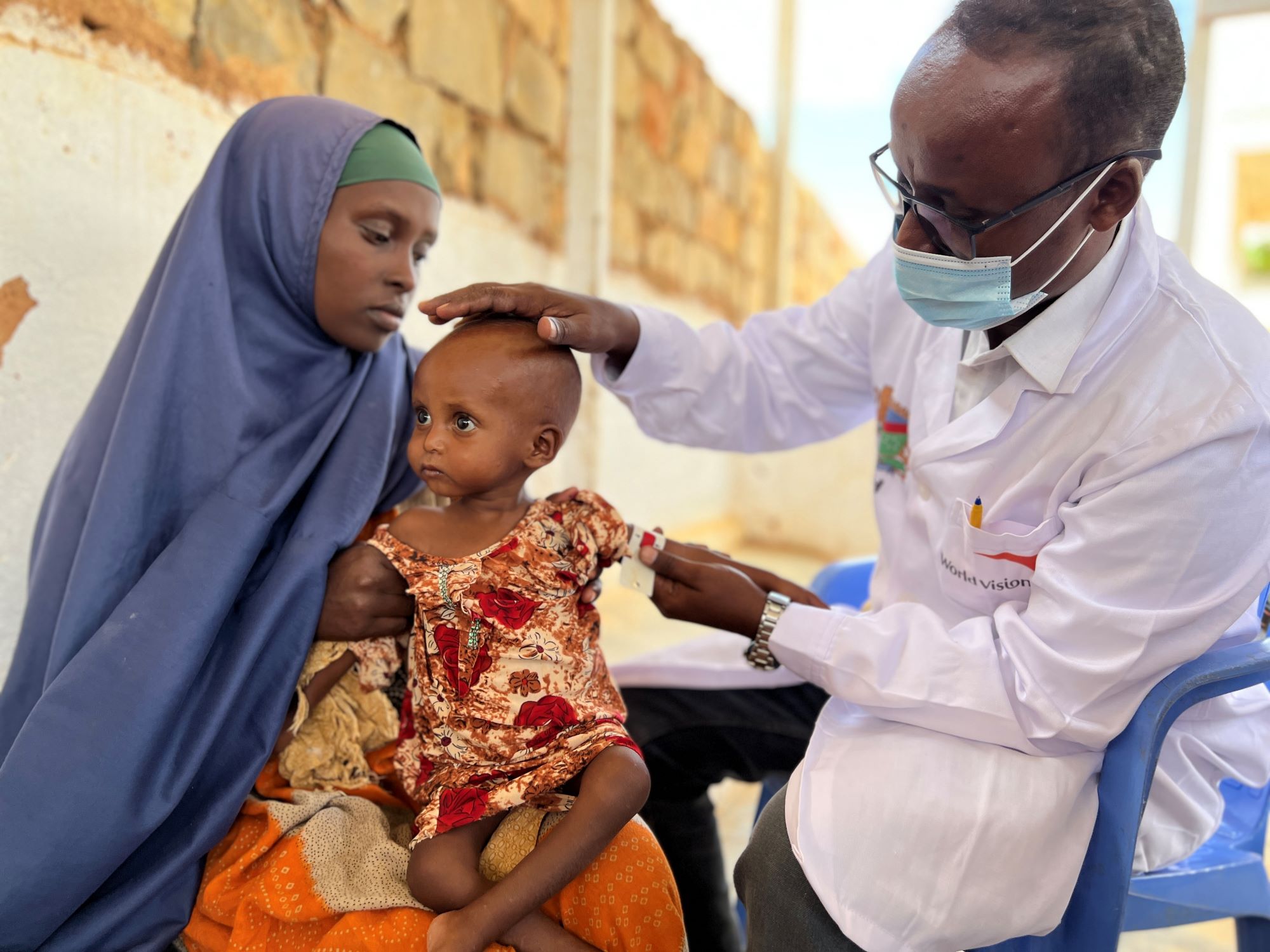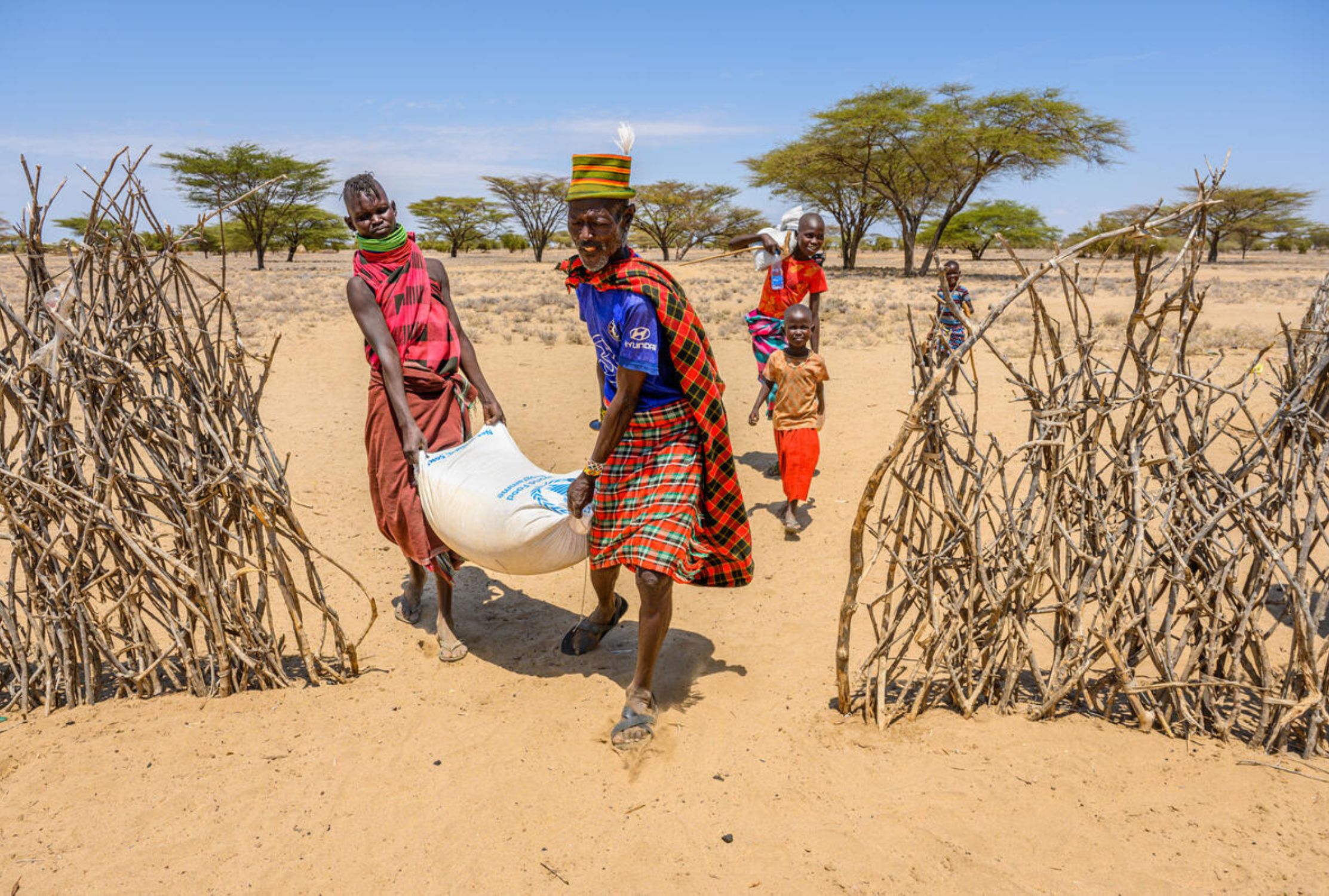
How to talk to children about the hunger crisis
Help to make navigating a difficult conversation easier
One of the hardest parts of being a parent is having to expose your children to the hardships that are occurring around the world. From talking to children about the crisis in Ukraine to explaining what a refugee is, there comes a time in a child’s life where, through the news cycle and social media, they will naturally have questions about what is going on around the world.
The issue of hunger is an ever-changing one. Due to the aftershocks of the global pandemic, the worsening climate crisis and ongoing conflicts, today 50 million people are facing starvation around the world. It’s an issue that is becoming even more severe and so it’s something that children are likely to be exposed to.
If your child is asking questions, or you are simply looking to start a dialogue, discover our tips for talking to children about the hunger crisis.
Explain why the hunger crisis is happening
For some children, who have never experienced hunger and have all of the food they need, it can be hard to understand that many children around the world are going hungry. However, by breaking down some of the things that are causing the hunger crisis to worsen, they will gain more of an understanding of the situation and why it’s happening. Of course, you should be sure to use age-appropriate language and terms to not overwhelm your child, but at the same time, ensure they understand what’s happening.
Talk about where our food comes from and why climate disasters like floods or droughts might mean that crops aren’t being grown as quickly (or at all). Explain to them that due to Covid (and conflict issues if they are a bit older), that food might not be able to be delivered as it would have before. Discuss with them that things are expensive, and sometimes people don’t have the money to go to the shop whenever they’d like.
Explain why it might affect others but not them
It can be hard for children to understand that an issue is something that needs to be solved if it isn’t happening directly to them, so taking the time to explain to them why they may not be affected by hunger is another important step. It can help children recognise that they are fortunate but also be aware that people around them, even their friends at school, might not be.
Between April 2021 and March 2022, more than 2.1 million food bank parcels were given out in the UK, with the majority going to children. It’s becoming increasingly likely that children in the UK, as well as around the world, will be affected by hunger due to the rising cost of living and the hard reality of this means that our children will not be able to be shielded from what’s going on.
It may be that they see children at school getting free school meals, or if they go to dinner at a friend’s house and are given a different quality of meal, they will start questioning this. They may learn in school about poverty and how it affects countries around the world. Whatever prompts them to be curious, if a child understands why things are happening, they will understand that they are in a position where they can help others.
Explain the ways that they can help end hunger
Talking to children about issues like world hunger can be hard as we often feel powerless in the face of global emergencies, unsure how we can truly make a difference. But there are ways to help. Through donations to charities working with those who are being affected the worst, to engaging in your own local community by volunteering at food banks, you can help on a range of levels. You could also look at our fundraising ideas for ways to raise money to donate.
When talking to children about any issue, making sure they understand that they can make a difference is essential or they may feel powerless and overwhelmed. List some options they have to get involved and ask them which ones they’d like to do – don’t force them into something they aren’t comfortable doing. This way you are not only ending the conversation on a more positive and proactive note, but you are teaching them good values and explaining that they can help people in need when they are able to.
How can you help the hunger crisis?
The hunger crisis isn’t being caused by one particular issue and so there is not one particular action that can help to solve it. Floods and droughts are destroying crops. Conflicts are displacing people and choking supply lines. The cost of living and Covid have driven food prices to extortionate levels.
When you sponsor a child, your donation will not only enhance a child’s life in another country, bringing them nutrition, health care and education, but will help their whole community, offering long-lasting systems and education that can prevent the fallback into poverty.
As well as knowing you are making a difference, sponsoring a child can be a great way to teach your children more about the world. You’ll get updates and videos from your sponsored child and their community. You’ll be able to exchange letters and photos, where your children can share stories and ask questions (and answer questions too!) They’ll be able to write in your sponsored child’s birthday card and see updates on how your donation money is being used.
Sponsorship is a way for them to create lifelong bonds and connections, learn more about the world they live in and another culture and help out in the fight against hunger.
We understand that the worsening hunger crisis can be scary and cause children to have questions, but answering their questions and showing them the ways in which they can help can make a difference.



